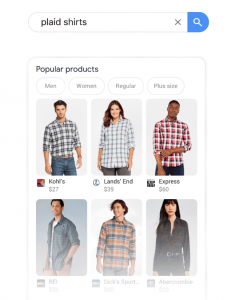
This news directly from Google is old news for those of us in the SEO game. It come to us directly from Google Webmaster Central Blog way back on Friday, May 6, 2011, but it’s becoming more and more essential to read as Google becomes more and more brutal and less and less forgiving when it comes to exiling websites that have ever wronged Google’s sense of SEO integrity. For those of you who read all about this four long years ago, print out the list and pin it up to the wall.
Function follows form?
It seems to me that Google’s tired of our draft work. Google seems to want us to revise our first drafts of the web. They don’t want more of us, they want better from us. Please be sure to read through the following list of twenty-three questions very carefully and answer as honestly as possible. Be sure to remember that Google trades in pages. When you read — and answer — these questions pay close attention to the language Google uses: it’s page-by-page and interested in the integrity and perfection every one: every page matters, possibly more than the site in total. I guess Google believes that orchestras live and die by their individual musicians. Perfect pages make perfect sites.
What counts as a high-quality site according to Google?
- Would you trust the information presented in this article?
- Is this article written by an expert or enthusiast who knows the topic well, or is it more shallow in nature?
- Does the site have duplicate, overlapping, or redundant articles on the same or similar topics with slightly different keyword variations?
- Would you be comfortable giving your credit card information to this site?
- Does this article have spelling, stylistic, or factual errors?
- Are the topics driven by genuine interests of readers of the site, or does the site generate content by attempting to guess what might rank well in search engines?
- Does the article provide original content or information, original reporting, original research, or original analysis?
- Does the page provide substantial value when compared to other pages in search results?
- How much quality control is done on content?
- Does the article describe both sides of a story?
- Is the site a recognized authority on its topic?
- Is the content mass-produced by or outsourced to a large number of creators, or spread across a large network of sites, so that individual pages or sites don’t get as much attention or care?
- Was the article edited well, or does it appear sloppy or hastily produced?
- For a health related query, would you trust information from this site?
- Would you recognize this site as an authoritative source when mentioned by name?
- Does this article provide a complete or comprehensive description of the topic?
- Does this article contain insightful analysis or interesting information that is beyond obvious?
- Is this the sort of page you’d want to bookmark, share with a friend, or recommend?
- Does this article have an excessive amount of ads that distract from or interfere with the main content?
- Would you expect to see this article in a printed magazine, encyclopedia, or book?
- Are the articles short, unsubstantial, or otherwise lacking in helpful specifics?
- Are the pages produced with great care and attention to detail vs. less attention to detail?
- Would users complain when they see pages from this site?
I might add three more circa 2015:
- Is this article native-accessible and mobile-optimized for users visiting via phones and tablets?
- Is there a noticeable delay between when the page is requested and when it is fully displayed?
- Is it easy for visitors to get immediate assistance via chat, email, or social media?
Even sites that followed what might have been the letter of what was legal and worked like a charm years ago when Google had its hands tied is now considered black hat. And Google never forgets and is exacting its revenge of sorts. It seems like Google has been begging us to not be evil for years and until now the threats have been hollow. No more.
I recently spoke to a gentleman who has seen the annual revenue from his previously Google-favored eCommerce site go from $ 18 million to $ 300,000 over the last few years, resulting in a business that employed over a dozen full-time staff in its heyday but now limps along with a skeleton staff of two or three part-timers.
That’s quite a severe penalty.
My advice is as follows: spend some of the resources you pile in to paid search and buying backlinks and spend some of it answering Google’s very telling 23-questions — and then doing something about it.
A friend of mine is probably the most search-savvy lawyer on the planet. He’s created am entire encyclopedia of content that is meant to ultimately lure new business to his law practice. He’s always been on the bleeding edge of SEO’s state of the art and, as a result, also routinely gets black eyes from Google’s algorithmic changes and updated.
A few months ago, my friend hired a former national newspaper managing editor full-time in order to bring all of these thousands of sundry, ad hoc, random tactical pages into an edited, revised, updated, and strategically-unified compendium that takes a lot of time and a ton of resources to come into compliance with the spirit of what Google wants from the content it delivers to its users and visitors.
I hope that this four-year-old list of questions is useful to you. I promise that they’re not only still germane to Google’s best practices in 2014 but they’re more important than ever. In the last couple years, Google’s bark has gotten a lot more bite. Avoid getting bit!
Good luck and go git ‘em, Tiger!
(202)





